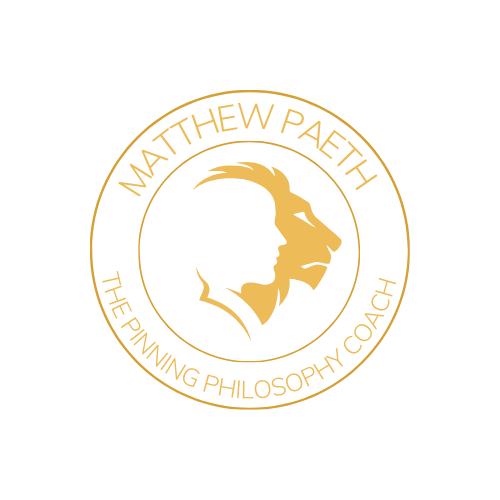
Why Every Athlete Needs a Rest and Recovery Routine: Beyond the Hustle
Ever feel like you’re training harder but seeing fewer results? Or worse—hitting a plateau, constantly sore, or feeling mentally drained? If you’re not prioritizing rest and recovery, your performance will suffer.
Rest and recovery aren’t just about avoiding burnout; they’re scientifically proven to enhance muscle repair, prevent injuries, and optimize endurance. When done right, recovery allows athletes to push harder, perform better, and extend their careers.
If you’re serious about athletic performance, it’s time to treat your recovery routine with the same intensity as your training. Let’s break down exactly why rest and recovery are crucial and how to do it right.
The Science of Recovery: How Your Body Rebuilds
Muscle Repair and Growth
After intense training, your muscles develop microtears. Recovery time allows your body to repair and strengthen those fibers, increasing overall strength and endurance.
Key Recovery Factor: Sleep. While you sleep, your body releases growth hormones and testosterone, which play a direct role in muscle repair. Poor sleep can lead to decreased strength, increased injury risk, and slower recovery.
Replenishing Energy & Fighting Inflammation
Training depletes glycogen stores (your body’s fuel). Without proper recovery, your muscles remain fatigued, and performance declines. Recovery also reduces inflammation, preventing soreness from turning into chronic pain.
Top Strategies for Faster Recovery:
✅ Anti-inflammatory foods (berries, leafy greens, turmeric, omega-3s)
✅ Proper hydration (water + electrolytes)
✅ Sleep and stress management
Nervous System Reset: Why Rest Improves Performance
Your nervous system controls everything from reaction time to coordination. Overtraining can overload your system, leading to decreased power output and slower reflexes.
✅ How to Improve Recovery:
Track Heart Rate Variability (HRV) to measure nervous system fatigue
Prioritize deep sleep for hormonal balance
Alternate between high-intensity and recovery-focused workouts
How Recovery Enhances Athletic Performance
Prevents Overtraining Syndrome
Training too hard without recovery can lead to chronic fatigue, poor performance, and increased injury risk. A well-planned post-workout recovery routine prevents overtraining and ensures long-term progress.
Boosts Skill Development & Injury Prevention
When you’re exhausted, your form deteriorates, and your chance of injury skyrockets. Well-rested athletes have better coordination, reaction time, and focus.
✅ Rest days = better movement quality, fewer injuries, and faster progress.
Mental and Emotional Recovery for Athletes
Physical recovery is only half the battle—mental recovery is just as important. Training is a physiological stressor, and without adequate mental recovery, athletes experience burnout, decreased motivation, and performance anxiety.
✅ Recovery Strategies for Mental Toughness:
Meditation & breathwork (lowers cortisol and enhances focus)
Visualization techniques (train your mind like you train your body)
Engage in hobbies outside of your sport (prevents burnout)
The Ultimate Recovery Routine for Athletes
1. Sleep Optimization
7-9 hours per night for full muscle recovery and cognitive function
Create a dark, cool sleep environment
Limit screen time and caffeine before bed
2. Post-Workout Nutrition
Protein + carbs = muscle repair & glycogen replenishment
Hydration with electrolytes to replace lost minerals
Omega-3s & antioxidants to reduce inflammation
3. Active Recovery Techniques
Low-intensity cardio (walking, swimming, cycling)
Foam rolling & stretching for flexibility
Yoga & mobility work to enhance blood flow
4. Passive Recovery Methods
Massage therapy & foam rolling reduce muscle tension
Ice baths & contrast therapy for inflammation control
Heat therapy (saunas, Epsom salt baths) for relaxation
5. Mental Recovery & Stress Reduction
Mindfulness & meditation for focus and stress management
Journaling to track mood and training progress
Social downtime to refresh mental energy
6. Periodization & Rest Days
Scheduled rest days = long-term performance gains
Deload weeks (lower intensity training to prevent burnout)
Listen to your body—fatigue is a sign to step back, not push harder
Customizing Your Recovery Plan
Every athlete is different. What works for one might not work for another. The key is to pay attention to your body’s signals and adjust accordingly.
✅ Track performance and energy levels
✅ Experiment with different recovery methods
✅ Stay consistent—recovery is a long-term strategy
Final Thoughts: Prioritize Recovery, Elevate Performance
If you want to train harder, get stronger, and avoid burnout, rest and recovery must be part of your game plan.
Athletes who prioritize muscle recovery, optimize sleep, and use active recovery strategies consistently outperform those who don’t. The smartest athletes know: it’s not just about how hard you train, but how well you recover.
Ready to take your athletic performance to the next level? Start prioritizing recovery today. Your body—and your future performance—will thank you.
Join the Champion's Circle: Athlete Growth Hub!
Ready to take your athletic performance to the next level? Join the Champion's Circle: Athlete Growth Hub, where driven athletes come together to share insights, stay motivated, and elevate their game. Gain access to expert advice, exclusive content, and a supportive community that will help you crush your goals. Don’t miss out—unlock your potential and start growing today!
Join NowReady to take your game to the next level? 🚀 Book your free consultation today and discover how personalized coaching can help you reach your goals faster and more effectively. Don’t wait—let’s start your journey to success now! Click the link to schedule your session and unlock your full potential. 💪✨


